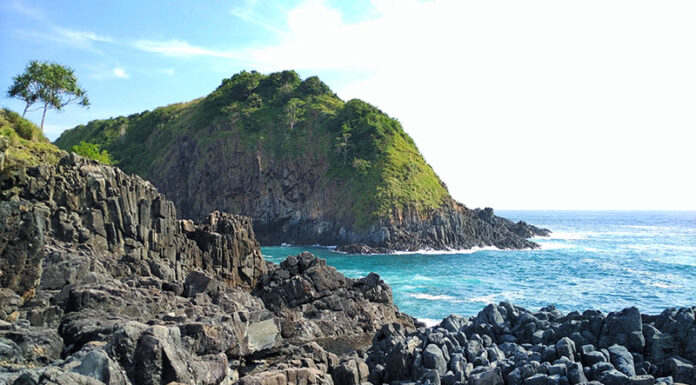An 18-year-old woman, identified as Merlin Septiana, tragically drowned on Thursday, December 19, 2024, after being swept away by a wave while posing for photographs at Semeti Beach in Central Lombok Regency, Indonesia.
The incident occurred around 3 p.m. local time. Septiana, a student at Madrasah Aliyah Ponpes Nurul Hakim Kediri in Lombok Barat, was seated on a rock facing the ocean, wearing headphones, when a powerful wave struck and pulled her into the turbulent waters. A photograph taken moments before shows her smiling, unaware of the imminent danger.
Friends and local residents made immediate rescue attempts but were unable to save her. “Efforts by her friends to help using makeshift tools such as wood and fishing rods were unsuccessful,” said Lalu Wahyu Efendi, head of the Mataram Search and Rescue Office. “Local residents immediately reported to the police.”
Authorities launched a search operation soon after being alerted. After approximately two hours, search and rescue teams located Septiana’s body at 5:13 p.m., according to Ridwan Mak’ruf, chief executive of the Central Lombok Regional Disaster Management Agency. She was pronounced dead at the scene.
It is believed that Septiana’s headphones may have prevented her from hearing the approaching wave, contributing to the tragedy. Her body was later returned to her family in Tanak Awu village.
This incident follows a similar occurrence on October 13, 2024, when 20-year-old Roni Josua Simanjuntak from North Sumatra was washed away by a wave while standing on wet rocks at Kedung Tumpang Beach, Tulungagung, East Java. “High waves and choppy seas hampered the search efforts” for Simanjuntak, whose body was discovered five days later near Karang Payung Beach.
Indonesia’s beaches, though known for their natural beauty, are also recognized for their hazards, including strong rip currents, unpredictable waves, and dangerous undertows. These risks extend to popular and remote beaches alike. Strong currents have claimed several lives at Double Six Beach in Seminyak, Bali in recent months. In another incident, an Indian tourist, Nilesh Mukhi, drowned at Angel Billabong Beach in Nusa Penida after a large wave struck while he was viewing the scenery from a cliff edge.
Lifeguards are sparse on Indonesian beaches, with only select areas marked by yellow and red flags indicating their presence. Many beaches rely on red flags to warn visitors of hazardous conditions, such as rip tides and strong undertows. Local authorities urge beachgoers to remain vigilant and avoid standing on wet rocks or turning their backs to the ocean, especially in areas prone to rogue waves.








